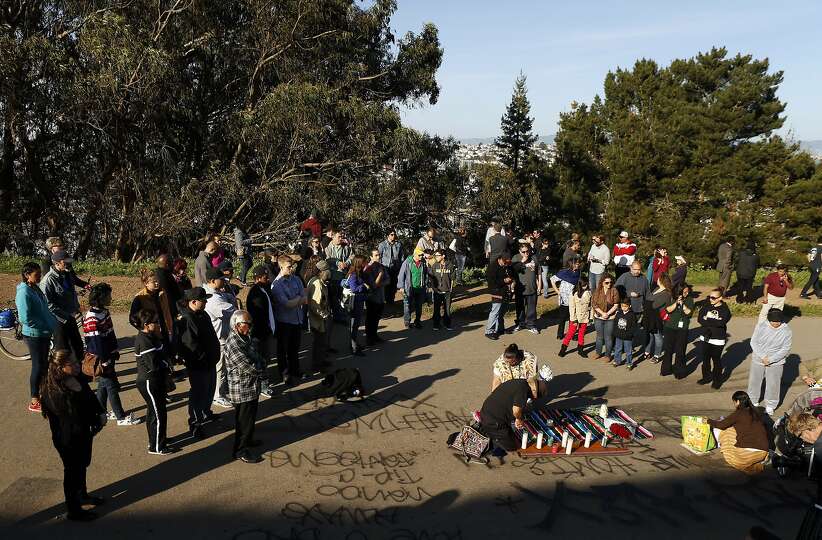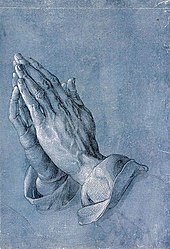Prayer:
- is an invocation or act that seeks to activate a rapport with an object of worship through deliberate communication.
- is to directly appeal to God to grant one's requests. This in many ways
is the simplest form of prayer. Some have termed this the social
approach to prayer.
- is meant to inculcate certain attitudes in the one who prays.
- is to help train a person to focus on divinity through philosophy and intellectual contemplation.
- is to enable the person praying to gain a direct experience of the
recipient of the prayer (or as close to direct as a specific theology
permits.
-is an experience of consciously being attentive, and having a silent love
toward God, which the individual experiences without demanding to
receive an experience.
- enables an existential transformation in the person praying. The
act of praying elicits a new kind of understanding which wasn't apparent
before praying. The Danish philosopher Soren Kierkegaard wrote that "the function of prayer is not to influence God, but rather to change the nature of the one who prays."
- is often used as a means o f faith healing in an attempt to use religion or spiritual means to prevent illness, cure disease, or improve health.
- is often done by speaking in a foreign tongue, a practice now known as glossolalia.
NB. For more on prayer one can read different books from various religions or first familiarize self with what the following link has: http://en.wikipedia.org/wiki/Prayer
I shall use this space to write about prayer. Prayer is a means of reminding: God, self and others. Prayer has benefits and these are as multitudinous as those praying. I shall write about some here. Let us see the first ten benefits of prayer and personality. The Psalms written by King David will be referred to a lot in most of these series.
1. Prayer improves on how one reflects on self.
2. Prayer improves on how one reflects on others.
3. Prayer improves on how one reflects on the surrounding environment.
4. Prayer improves on one's usefulness and worth to self.
5. Prayer improves on one's usefulness and worth to others.
6. Prayer improves on humility and courtesy.
7. Prayer improves on social interaction.
8. Prayer improves on how one applies themselves.
9. Prayer improves on the ability to weigh consequences.
10. Prayer is accountability.
A friend of mine took me through events that in turn caused three different aspects in which I sought to understand what praying is. The three aspects being: The beginnings of knowing God; an intimate distance with God and living in the times of fulfillment.
We visited places in United States that pulled at my spiritual persona. We visited the National Shrine in Washington DC, the Bernal Heights open air prayer venue and a museum where Albrecht durer's "Praying Hands" was part of the artifacts on display.
I am someone who has contemplated what was going on in King David's mind as he thought about Jehovah, Yahweh or the Divine being whose name is never pronounced. It must have been so hard for him. At one time he (David) needed a solitary moment to meditate on life. May be he found time deep in the night. May be something pulled at his heart, woke him out of sleep and gave him energy to compose a prayer or two.
The stimuli must have been overwhelming. The duties as a sheep owner, a healer, a sought after musician and a very dashing royal person. He was a virile boy growing up in those lands known as Palestine then. He was the sheep keeper. He must have trained the sheep so well, that they never strayed. Or when they did, he was able to get them back. He must have known the pasture lands like he knew his musical instruments. He must have known how to take full care of all his animals. He knew which herbs to use. He must have sold good sheep products. He must have sung so well, that he was sought after. He must have arranged the words to his music and poems so well that it was magical and mesmerizing. Just imagine the play of words! We are told that Psalm 25
| 1 |
Blessed is the man that walketh not in the counsel of the ungodly,
| |
|
nor standeth in the way of sinners, |
|
nor sitteth in the seat of the scornful. |
|
|
| 2 |
But his delight is in the law of the LORD;
| |
|
and in his law doth he meditate day and night. |
|
|
| 3 |
And he shall be like a tree planted by the rivers of water, Jer. 17.8
| |
|
that bringeth forth his fruit in his season; |
|
his leaf also shall not wither; |
|
and whatsoever he doeth shall prosper. |
|
|
| 4 |
The ungodly are not so:
| |
|
but are like the chaff which the wind driveth away. |
|
|
| 5 |
Therefore the ungodly shall not stand in the judgment,
| |
|
nor sinners in the congregation of the righteous. |
|
|
| 6 |
For the LORD knoweth the way of the righteous:
| |
|
but the way of the ungodly shall perish. |
|
|
Psalm 25 reads:
1 In you, Lord my God,
I put my trust.
2 I trust in you;
do not let me be put to shame,
nor let my enemies triumph over me.
3 No one who hopes in you
will ever be put to shame,
but shame will come on those
who are treacherous without cause.
4 Show me your ways, Lord,
teach me your paths.
5 Guide me in your truth and teach me,
for you are God my Savior,
and my hope is in you all day long.
6 Remember, Lord, your great mercy and love,
for they are from of old.
7 Do not remember the sins of my youth
and my rebellious ways;
according to your love remember me,
for you, Lord, are good.
8 Good and upright is the Lord;
therefore he instructs sinners in his ways.
9 He guides the humble in what is right
and teaches them his way.
10 All the ways of the Lord are loving and faithful
toward those who keep the demands of his covenant.
11 For the sake of your name, Lord,
forgive my iniquity, though it is great.
12 Who, then, are those who fear the Lord?
He will instruct them in the ways they should choose.
13 They will spend their days in prosperity,
and their descendants will inherit the land.
14 The Lord confides in those who fear him;
he makes his covenant known to them.
15 My eyes are ever on the Lord,
for only he will release my feet from the snare.
16 Turn to me and be gracious to me,
for I am lonely and afflicted.
17 Relieve the troubles of my heart
and free me from my anguish.
18 Look on my affliction and my distress
and take away all my sins.
19 See how numerous are my enemies
and how fiercely they hate me!
20 Guard my life and rescue me;
do not let me be put to shame,
for I take refuge in you.
21 May integrity and uprightness protect me,
because my hope, Lord, is in you.
22 Deliver Israel, O God,
from all their troubles!
Like I said earlier, prayer is a means of reminding: God, self and others. Prayer has so
many benefits and the
first ten benefits of prayer and personality are:
1. Prayer improves on how one reflects on self.
2. Prayer improves on how one reflects on others.
3. Prayer improves on how one reflects on the surrounding environment.
4. Prayer improves on one's usefulness and worth to self.
5. Prayer improves on one's usefulness and worth to others.
6. Prayer improves on humility and courtesy.
7. Prayer improves on social interaction.
8. Prayer improves on how one applies themselves.
9. Prayer improves on the ability to weigh consequences.
10. Prayer is accountability.
 |
| As a student of prayer I have had an opportunity to meet with groups dedicating time to pray. I have visited Bernal Heights on many to capture moments of prayer. |
 |
| One moment of prayer on Bernal Heights I happened to witness. |
 |
| Praying Hands by Albrecht Durer |
 |
| The National Shrine in Washington DC. I spent enjoyable and at the same uplifting retreats here. I learnt balance of prayer and works of miracles in our lives here. |



